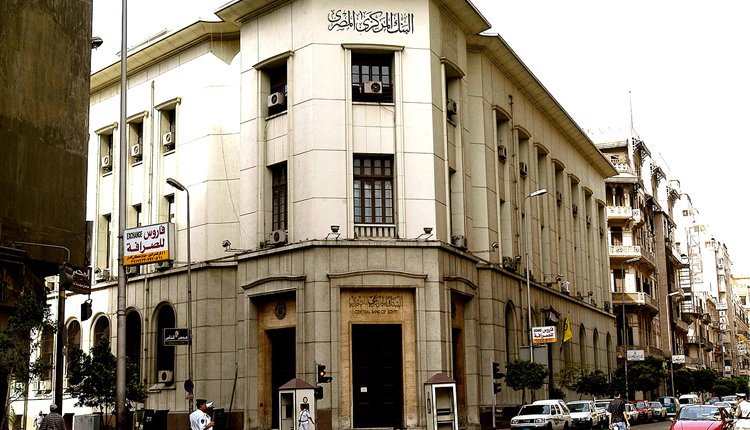Central Bank of Egypt (CBE) is not expected to introduce more cuts in the key interest rates, notably with the annual inflation rates being in the range that the CBE has set, said Head of Research at EFG Hermes Ahmed Shams El-Din on Wednesday.
On 16 March, the CBE slashed interest rates on overnight deposits, overnight lending, and the rate of the main operation by 3 percent (300 bps) to 9.25 percent, 10.25 percent, and 9.75 percent, respectively.
Shams El-Din’s comments came during a discussion panel held virtually on Wednesday, organised by Khodair Advisory Office.
Shams El-Din stated that Egypt’s net international reserves (NIRs) are in the safe zone despite witnessing a consecutive decline since March due to the COVID-19 crisis, adding that the exit of investors from the Egyptian market through selling their T-bills and bonds is normal in times of crisis and that the situation will change after the crisis ends.
However, Shams El-Din says investors have gained significant profits through purchasing Egyptian T-bills and bonds, especially since the interest rate on this kind of debt instrument ranges between 2.5 percent and 3 percent and is expected to drop to between 1 percent and 1.5 percent if the inflation rate keeps its down trend.
“Investing in the Egyptian debt instrument at this time is a golden chance for investors due to the interest rate levels,” Shams El-Din told Ahram online.
Regarding the anticipated meeting of the Monetary Policy Committee (MPC) to review the key interest rates, scheduled to be held on 26 June, Shams El-Din told Ahram Online that the MPC is expected to keep the interest rates unchanged over 2020 even if the inflation rates jump to 6 or 7 percent.
Shams El-Din explained to Ahram Online that the rise in external debt is due to the new deals that Egypt has made, especially the deals with the International Monetary Fund, in order to provide the required US dollar liquidity for the domestic market.
Shams El-Din said that the situation of the external debt is dependent on reaching a vaccine for COVID-19, as the pandemic has imposed a state of uncertainty that makes it difficult to predict how Egypt’s external debt will perform.
Regarding investment in the Egyptian market, Shams El-Din said that the firms that have liquidity will be attractive for foreign investors amid the crisis and after it ends, regardless of the firms’ profits or deals, as the COVID-19 shapes a new model for the global economy.
He also said that Egypt’s budget has room for implementing more catalytic measures for all sectors, alongside the 100 billion pounds (2 percent of GDP) that President Abdel Fattah al-Sisi has instructed to provide for the sake of supporting the harmed sectors.
“According to the nature of the Egyptian economy, a significant share of which consists of informal business activity, the government could expand its catalytic measures for the private sector and SMEs amid the current crisis, especially since the budget deficit is around 5 percent of GDP and is expected to rise to about 8.5 percent,” Shams El-din declared.
He said that the procedures that the CBE and the government have taken with the onset of the COVID-19 crisis have helped a lot in absorbing the crisis’ repercussions, adding that the infrastructure projects and the economic reforms that Egypt implemented over the past three years have played a role as well.
He also added that the COVID-19 crisis is testing the Egyptian private sector’s seriousness regarding maintaining its workforce while continuing its activities, and that the pre-emptive procedures the government has taken, alongside the economic reforms it has adopted, have helped alleviate the harsh impacts of COVID-19.
On the other hand, the head of Khodair Advisory Office Mohamed Khodair said that Article 20 of the investment law allows investors to receive what is called a “golden licence,” which greatly facilitates investment opportunities in Egypt, as the investor can overcome all licensing procedures for his projects through this licence.
